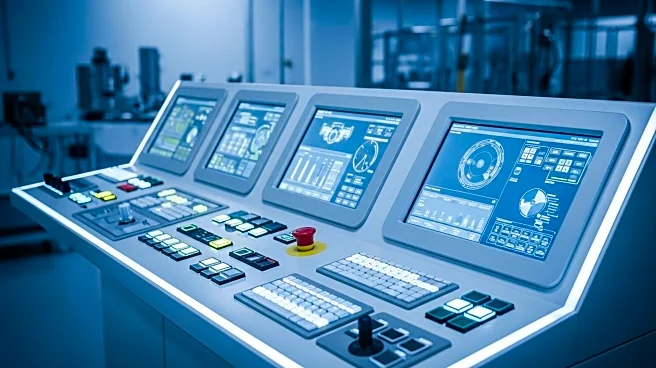What is the story about?
What's Happening?
A global pharmaceutical company has upgraded its automation systems to integrate lyophilizers with its SCADA system, aiming to enhance production decision-making. This integration involves upgrading the lyophilizer platform to enable data historization and standardize reporting across various systems, including single-use bioreactors and mixers. The company seeks to standardize technologies to simplify maintenance and improve operational efficiency. This move reflects a broader trend in industrial automation where companies are increasingly adopting predictive and adaptive environments to optimize production processes.
Why It's Important?
The integration of SCADA systems in pharmaceutical manufacturing is crucial for improving efficiency and reducing operational costs. By standardizing technologies, the company can streamline maintenance and ensure consistent reporting, which is vital for regulatory compliance and quality control. This upgrade not only enhances production capabilities but also positions the company to better respond to market demands and technological advancements. The pharmaceutical industry, which relies heavily on precise and reliable manufacturing processes, stands to benefit significantly from such automation upgrades.
What's Next?
The pharmaceutical company may continue to explore further automation and integration opportunities to enhance its production capabilities. As the industry evolves, there could be increased adoption of similar technologies across other sectors, driving innovation and efficiency. Stakeholders, including regulatory bodies and industry leaders, may closely monitor these developments to assess their impact on production standards and compliance.
Beyond the Headlines
The move towards automation and integration in pharmaceutical manufacturing raises ethical and legal considerations, particularly concerning data privacy and security. As companies collect and standardize data across systems, ensuring the protection of sensitive information becomes paramount. Additionally, the shift towards automated environments may influence workforce dynamics, necessitating new skill sets and training programs.















